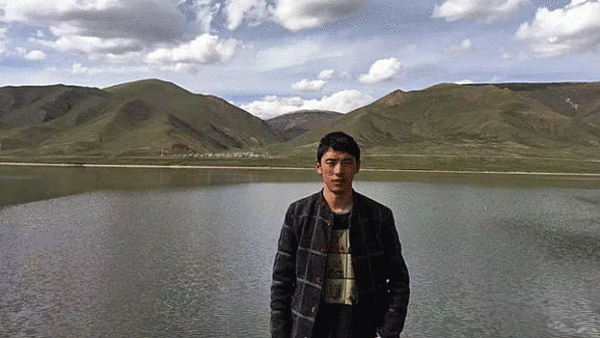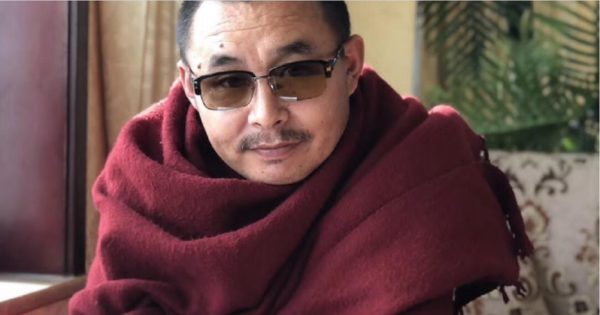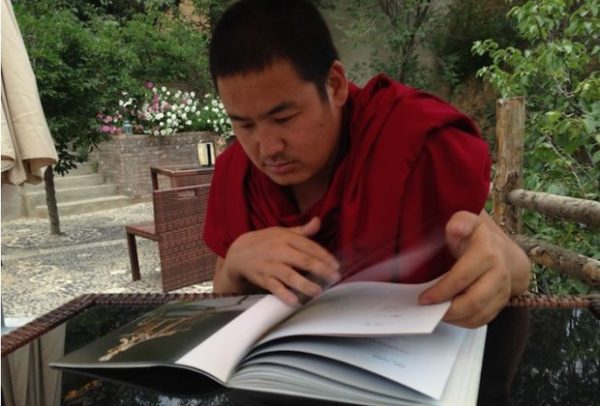In recent weeks, the detentions of six Tibetans have come to light, among them writers and intellectuals. Of these, four are known to be either in detention or sentenced to prison terms for freely expressing their opinions and thoughts on Tibetan national identity and culture. Two are in detention after Chinese security personnel searched their phones.
Chinese authorities in Tibet routinely detain Tibetans for “endangering state security” for expressing their genuine opinions, thoughts and beliefs that are out of alignment with the Chinese state narrative on history, culture, people and politics. Criminal charges of “inciting separatism,” “leaking state secrets” and “picking quarrels and provoking trouble” are leveled against the Tibetans who express their ideas taking pride in their culture and beliefs.
In a long list of detentions and sentencing of intellectuals like Go Sherab Gyatso, Rinchen Tsultrim and Lobsang Lhundup, four more writers—Thupten Lodoe, Rongwo Gendun Lhundup, Rongwo Gangkar and Nyima—are known to have been either detained or sentenced for expressing their opinions and thoughts. Although not known to have published publicly, Topgha and Sardak are believed to have been detained for expressing their opinions via their phones. China’s technological surveillance infrastructure in Tibet for censorship monitors for words and terms that the authorities deem as challenging the state.
The International Campaign for Tibet is deeply concerned about the reported detentions of Tibetan writers and intellectuals, who apparently are persecuted solely for their peaceful expression of thought and opinion. The detentions contribute to a pattern according to which the Chinese state represses any independent cultural expression of Tibetans.
Following are the details of the detainees that have come to light despite the extreme communication challenges and risks faced by Tibetans in Tibet when interacting with the outside world. ICT will continue to monitor these cases and search further information if possible.
Thupten Lodoe

Photo: Radio Free Asia
Thupten Lodoe, 34 years old, writing under the pseudonym “Sabuchey,” was sentenced to four years and six months in prison around June 14, 2022. He was taken into custody in mid-October 2021 and held in incommunicado detention for eight months prior to a court sentencing him to four and a half years in prison on charges of “inciting separatism,” “endangering state security” and “harming ethnic unity.” Details about where he is imprisoned are still unknown.
Thupten had been warned several times in the past by Chinese security officers about his prolific writings on socioeconomic issues. His writings in both Tibetan and Chinese have appeared on various social media and literature forums and are loved by readers in Tibet. He also translated many Chinese and English works into Tibetan. Following his arrest in October 2021, the security officials seized his computer and used the content therein as proof of his “separatist” activity, according to the India-based Tibetan Centre for Human Rights and Democracy (TCHRD). His social media accounts have been blocked and the posts erased.
Born in 1987 in Bum-nying village in Sershul (Chinese: Shiqu) County in Kardze (Ganzi) Tibetan Autonomous Prefecture, Sichuan, Thupten worked as a teacher at a middle school in Sershul County for many years before quitting it owing to Chinese government repression. He is father to two children.
Nyima

Photo: Tibet Times
Nyima, a research student at Sichuan Nationalities University, aka Southwest Minzu College, was sentenced to three years in prison on June 5, 2022. Dartsedo (Kangding) Intermediate People’s Court convicted him of leaking state secrets according to exile Tibetan media outlet Tibet Times and Radio Free Asia’s Tibetan service. It is not known where he is being incarcerated.
Tibetans in Tibet knew Nyima was a passionate advocate for the preservation of Tibetan language and culture. Known by the nickname “Lotsawa” (Tibetan for “translator”) for his proficiency in Tibetan, Chinese and English, Nyima made presentations on Tibet’s history and the situation in Tibet during his interactions with foreigner tourists. It is believed that he was arrested and convicted with leaking state secret for his advocacy work.
Nyima hails from Hrilen (Shělián xiāng) village in Dartsedo, historically a border town between Tibet and China. He was studying Tibetology at the Sichuan Nationalities University.
Originally established as Dartsedo Teachers Training College for Nationalities in 1985, the educational institution was renamed as Sichuan Nationalities University in 2009 after the integration of Kardze (Ganzi) Agricultural School, Kardze State Finance and Trade School, and Dartsedo Teachers Training College for Nationalities in 2004.
A former student at the university told the International Campaign for Tibet that researchers at the university who undertake field research work have been increasingly facing harassment from the authorities for their work. In comparison, desk-based researchers do not face the same level of harassment.
Rongwo Gendun Lhundup

Photo: Tibetan Centre for Human Rights and Democracy
Siling (Xining) Intermediate People’s Court sentenced Rongwo Gendun Lhundup, 48, to four years in prison for “inciting separatism” on Dec. 1, 2021. He was known to have been arrested by the police and driven away in a black car in December 2020, while on his way to a religious debate in Rebkong (Tongren), Malho (Huangnan) Tibetan Autonomous Prefecture, Qinghai. Information on his conviction by the Xining court was confirmed seven months after the court passed the judgement. He was last known to have been detained in a prison in Silling.
Gendun had faced multiple interrogations in the past for criticizing China’s “Sinicization” of Tibetan Buddhism. Soon after the publication of his poems titled “Khorwa” (a Tibetan Buddhist term for the cyclicity of life, matter and existence), he was detained by Chinese security personnel, according to India-based TCHRD.
Writing under the pseudonym “Lhamkok” (Tibetan for “shoe”), Gendun’s writings about Tibetan language and culture are respected by many in Tibet for daring to speak the truth about the current and future state of Tibetan culture and language. A prolific writer with publication titles such as “Black Beads,” “Life’s Melodious Horse,” “Divine Poetry,” and “White Volume,” his poem, “The One Born in the Year of Pig,” in praise of the Dalai Lama, is popularly loved by readers in Tibet. Besides managing a famed website “Tsenpo” (Tibetan for “emperor”) in the past, he also travelled to various parts of Tibet to teach and participate in discussions on Tibetan culture, according to the TCHRD.
Rongwo Gangkar

Photo: Radio Free Asia
Forty-eight-year-old writer Rongwo Gangkar had been held in incommunicado detention since early 2021, but his arrest by the Chinese security personnel came to light only this month, a year and a half after his arrest. A Tibetan living in Tibet told the US-based Radio Free Asia that the Chinese security had taken him away in the beginning of 2021, but the tight COVID-19 restrictions had made it hard to learn of his arrest until now except for a few of his closest well-wishers.
Hailing from Rebkong (Tongren), Malho (Huangnan) Tibetan Autonomous Prefecture, Qinghai, the same hometown as that of Rongwo Gendun Lhundup, Gangkar was well-known for his popular writings such as “The Knot” and “An Interview with Gendun Choephel.”
Topgha and Sardak

Photo: Tibet Times
Chinese security personnel detained two Tibetan youth, 20-year-old Topgha and 25-year-old Sardak, on the night of June 18, 2022. The two were detained after security personnel carried out a night raid near Meru monastery in Lhasa, Tibet’s capital. They were taken away to the Public Security Bureau office at Beijing East Road 12 after the security personnel searched through their mobile phones.
Their current whereabouts are not known. According to the exile media outlet Voice of Tibet, they were originally from Chumarleb county in Yulshul Tibetan Autonomous Prefecture, Qinghai, and moved between Lhasa and Shigatse.

